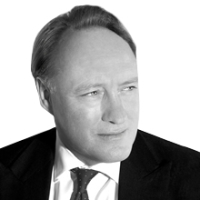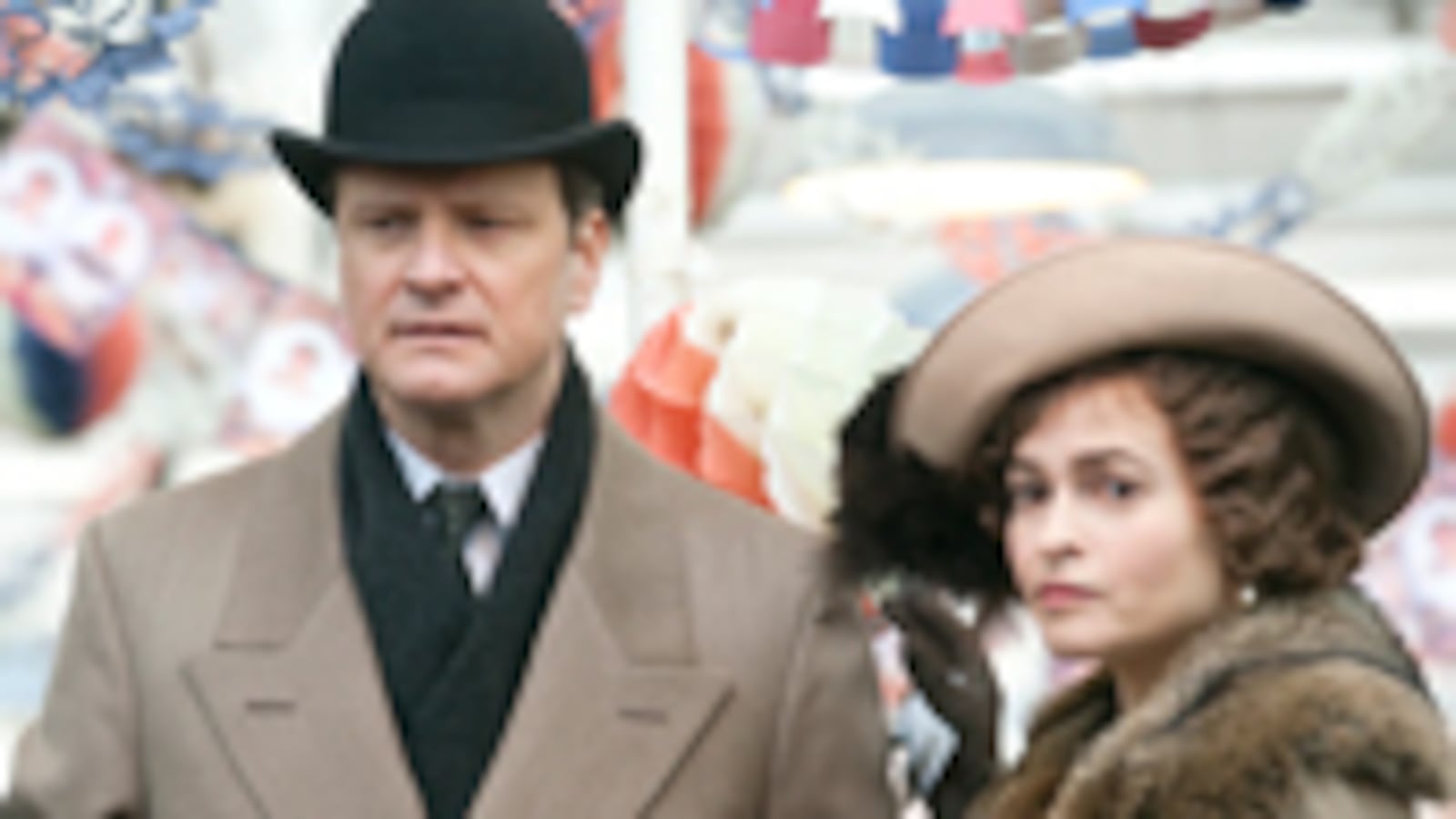The buzzy new movie, The King's Speech, is an affectionate portrait of Queen Elizabeth II's parents, Bertie, the Duke of York (later King George VI) and Elizabeth the Duchess of York (later the Queen Mother), told through the prism of the King's overcoming of his stammer. Starring Colin Firth as the king, Helena Bonham Carter as the queen, and Geoffrey Rush as the king's Australian speech therapist Lionel Logue, it also boasts a cast that includes Derek Jacobi, Michael Gambon, Timothy Spall, and Anthony Andrews. Yet before it is accepted as an accurate historical record of what happened to the Royal Family between 1925 and 1939, viewers should know of the very many glaring and egregious inaccuracies and tired old myths that this otherwise charming film unquestioningly regurgitates.
Of course Hollywood has long played fast and loose with history. As the clerihew goes:
Cecil B. de Mille Rather against his will Was persuaded to leave Moses Out of The Wars of the Roses.
But at a moment when, as a result of Prince William's engagement to Kate Middleton, many eyes will be turned onto the House of Windsor, it is as well to explode a few legends about the Prince's great-grandfather, George VI, the monarch who saw Britain through the Second World War. The first is the simple one that his stutter wasn't anything like as bad as the film depicts. In fact, it was relatively mild, and when he was concentrating hard on what he was saying it disappeared altogether. His speech to the Australian parliament in Canberra in 1927 was delivered without stuttering, for example. Yet in the movie it is so chronic that Colin Firth can hardly say a sentence without prolonged stuttering, right the way up to the outbreak of war in 1939. Of course, the whole premise of the movie is based on Logue's cure, but recordings of the Duke of York before he even met Logue make it clear that his problem was nothing like so acute as this film makes out.
Nor were the Duke and Duchess so pampered by courtiers that they could hardly work out how an elevator door worked, as is depicted in this movie. The Duke was mentioned in dispatches when as a midshipman he fought in a gun turret in the First World War battle of Jutland, mastering far more complex machinery than an elevator door; nor was the Duchess born royal. Similarly, Winston Churchill is shown as supporting the Abdication of George VI's elder brother King Edward VIII, whereas he violently opposed it. He is also depicted, along with the Archbishop of Canterbury Cosmo Gordon Lang and the Prime Minister Neville Chamberlain, as turning up to Buckingham Palace to witness the King's broadcast on the day war broke out in September 1939, as though they didn't have better things to do. A glance at Churchill's own memoirs would have put that screenwriters' myth to rest. Then a huge crowd gathers outside Buckingham Palace to congratulate the king on his speech, which is also completely fictitious.
As history it is worthless because of its addiction to long-exploded myths… Kate Middleton had better get ready for a lifetime of this.
The Duke would never, ever have sneered at the Australians to an Australian who was almost also a stranger, on one occasion calling Logue "a jumped-up jackaroo from the outback." The Royal family of those days understandably eulogized the British Empire that had so recently bled itself so white for King and Country in the Great War, and Bertie had happy memories of his very successful 1927 visit there. Nor did Edward VIII taunt his brother for his stutter, accusing him of wanting to usurp his throne and calling him "B-b-b-b-Bertie." They were close friends, and Edward well knew that Bertie wanted to be king-emperor as little as he. It was also quite wrong to suggest that their grandfather, Edward VII, wanted their father, George V, to "be frightened" of him. The two men were very close, indeed Edward VII brought George V's desk next door to his at Buckingham Palace so they could work together. Similarly, Queen Mary is depicted as a cold and heartless mother, yet it was on her lap that George VI went to cry during the Abdication.
• Andrew Roberts: The King Who Couldn’t Speak Several minor social bêtises—Wallis Windsor not curtseying to the Yorks, the Queen saying "Very nice to meet you" rather than "How do you do?," a private secretary speaking of "The Duke" rather than "His Royal Highness," and others—imply that the film could have done with an historical consultant. Even the ludicrous old lies about Joachim von Ribbentrop sending Wallis Windsor 17 red roses every day, and her working as a geisha in Shanghai, are trotted out to blacken her character and make the Yorks look better.
Tom Hooper, the director, has spoken of his disappointment that the film is rated 'R' because of the 15 or so F-words (as well as "bugger", "arse","balls", "willy", and so on) that the King is supposed to have said. 'What I take away from that decision," says Hooper, "is that violence and torture is OK, but bad language isn't.' Yet the swearing is so egregiously prolonged and unnecessarily repeated—and I suspect not fully justified historically either—that Hooper only has himself to blame.
The King's Speech is gorgeously produced—the depiction of a London "pea-souper" fog is excellent—and is bound to win many awards for the excellent acting of an all-star cast. But as history it is worthless because of its addiction to long-exploded myths, and for insights into the personalities of the key figures in the House of Windsor of the Twenties and Thirties it is less than worthless. Kate Middleton had better get ready for a lifetime of this.
Historian Andrew Roberts' latest book, Masters and Commanders , was published in the UK in September. His previous books include Napoleon and Wellington, Hitler and Churchill, and A History of the English-Speaking Peoples Since 1900 . Roberts is a fellow of the Royal Society of Literature and the Royal Society of Arts.






